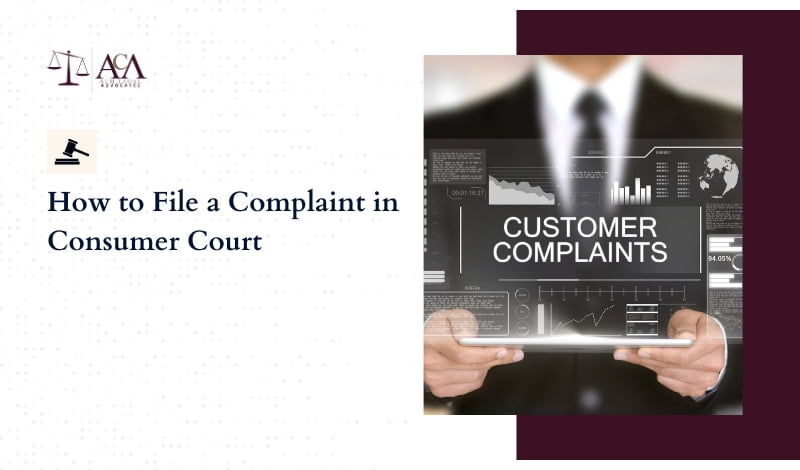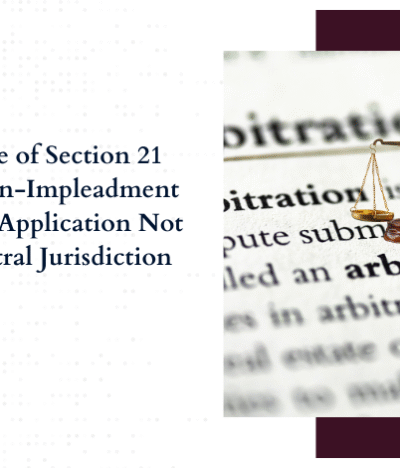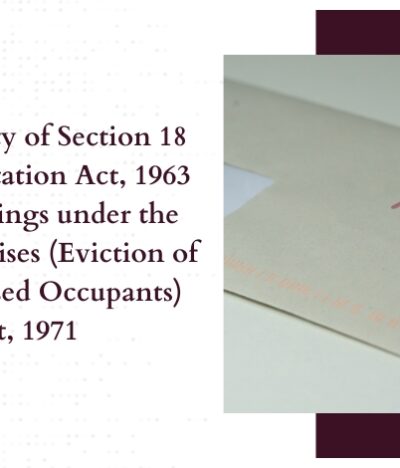Have you ever found yourself dissatisfied with a product or service you’ve purchased? If so, you’re not alone. Many consumers face similar frustrations every day. However, what sets proactive consumers apart is their willingness to seek resolution. One powerful avenue available to consumers is filing a complaint in the consumer court. This legal recourse empowers individuals to address grievances and ultimately seek justice for their experiences.
By providing a platform for consumers to voice their concerns and seek redress, consumer courts play a pivotal role in promoting fairness, transparency, and trust in the marketplace. Whether you’ve encountered issues with faulty products, deceptive advertising, or unfair trade practices, knowing how to navigate the consumer court system can empower you to advocate for your rights and drive positive change in the consumer landscape.
How to File a Complaint in Consumer Court
Filing a complaint in the consumer court might be the solution you’re looking for. In today’s consumer-driven world, knowing how to assert your rights effectively is essential. Let’s explore the simple yet powerful steps to initiate a complaint in the consumer court and reclaim control over your consumer experience.
Determining Jurisdiction
Before filing a consumer complaint, it’s crucial to determine the appropriate jurisdiction. This depends on the value of goods or services involved in the complaint. According to the Consumer Protection Act, 2019 following are the monetary jurisdiction of Commissions:
- District Forum: For claims up to Rs. 1 crore.
- State Commission: For claims between Rs. 1 crore and Rs. 10 crore.
- National Commission: For claims exceeding Rs. 10 crore.
Preparing the Complaint
The complaint must be filed within two years of the date the cause of action arose. This would be two years from the day the defect in products was discovered. A complaint shall be instituted within the local limits of the jurisdiction of:
- Place of business or residence of opposite parties, or
- Place of business or residence of the complainant, or
- where the cause of action, wholly or in part, arises
The complaint should be drafted carefully, providing all necessary details and documents to support the claim. It should include:
- Name and address of the complainant and the opposite party.
- Date of purchase of goods or availing of services, along with details and amount paid.
- Nature of the complaint (e.g., unfair trade practice, defective goods, deficiency in services).
- Copies of relevant documents such as bills, receipts, and any communication with the opposite party.
- Relief sought under the Act.
- Signature of the complainant or their authorized agent.
The process to file a consumer complaint in the District Forum
1. The complaint can be filed by the consumer or his agent on plain paper with the details of the grievance with the product or service provider.
2. You must include receipts, bills, contracts or any relevant correspondence pertaining to the transaction or service as you evidence with the complaint.
3. Your complaint must include your personal information, details of the opposite party, a clear description of the problem, and the resolution you seek.
4. Your written complaint must be officially notarized, ensuring its authenticity.
5. Three copies of the complaint are submitted: one for the official records and one for each party involved in the dispute.
6. The fee shall be paid in demand draft to the President, Consumer Disputes Redressal Forum, (name of) district.
The process to file a consumer complaint in the State Commission
1. Ensure that the value of goods or services involved exceeds Rs 1 Crore but is less than Rs 10 Crore.
2. One can also file an appeal in the State Commission against the order of the District Forum within a period of 45 days from the date of the order.
3. The application shall accompany the requisite fee in the form of a demand draft payable to the Registrar, (name of) State Commission in the respective state.
4. Gather essential documents for your complaint or appeal, including:
- Correct names and addresses of all parties involved.
- Certified copy of the District Forum’s order you’re appealing against.
- At least four additional copies of the appeal for each respondent.
- Any orders of conditional delay, interim orders, or other petitions, along with accompanying affidavits.
The process to file a consumer complaint in National Commission
1. If you are aggrieved by the order of the State Commission, you can file an appeal with the NCDRC within 30 days from the date of the State Commission’s order.
2. Draft your complaint or appeal, including all relevant details such as the nature of the grievance, parties involved, and desired resolution. Ensure that your complaint or appeal is comprehensive and clearly outlines your case.
3. A demand draft of the prescribed fee is payable to the Registrar of the National Consumer Disputes Redressal Commission.
4. An appeal challenging the order issued by the National Commission must be lodged in the Supreme Court within a one-month period from the date of the Commission’s ruling.
Conclusion
Knowing how to file a complaint in the consumer court is essential for consumers to assert their rights effectively and seek redress for grievances. Whether you’ve encountered issues with faulty products, deceptive advertising, or deficient services, understanding the process empowers you to advocate for your rights and drive positive change in the consumer landscape.
At ACM Legal, we understand the complexities of consumer law and the importance of navigating the consumer court system with expertise and precision. Our team of experienced lawyers specializes in consumer law and dispute resolution, providing comprehensive legal support to individuals seeking to file complaints or appeals. We’re here to guide you every step of the way and help you navigate the complexities of consumer laws with confidence and assurance.
Frequently Asked Questions
1. What types of complaints can be filed in the Consumer Court?
Consumers can file complaints related to a wide range of issues, including defective products, deficient services (such as poor repairs or unsatisfactory performance), unfair trade practices (such as false advertising or misleading claims), and violations of consumer rights (such as refusal to honor warranties or unfair contract terms).
2. Do I need a lawyer to file a complaint in the Consumer Court?
While it’s not mandatory to have legal representation, it’s highly recommended, especially for complex cases. A lawyer can provide valuable expertise in drafting the complaint, navigating legal procedures, presenting evidence effectively, and negotiating settlements. Additionally, having a lawyer increases the likelihood of a successful outcome and ensures that your rights are fully protected.
3. How long does it take for a case to be resolved in the Consumer Court?
The duration of a case varies depending on factors such as the complexity of the dispute, the backlog of cases at the Consumer Court, and the efficiency of the legal process. However, Consumer Courts are known for prioritizing consumer cases and endeavoring to resolve them expeditiously, typically within a few months to a year.
4. What should I do if I receive a legal notice from the Consumer Court?
If you receive a legal notice from the Consumer Court, it’s crucial to take prompt action. Seek immediate legal advice from a qualified lawyer specializing in consumer law to understand the contents of the notice, assess your rights and obligations, and formulate an appropriate response. Ignoring or delaying a response to the legal notice can have serious consequences, including adverse judgments against you.
5. How can ACM Legal assist me with Consumer Court matters?
At ACM Legal, our team of experienced lawyers specializes in consumer law and provides comprehensive legal services to consumers facing issues such as defective products, deficient services, unfair trade practices, and violations of consumer rights. Our lawyers can guide you through every step of the Consumer Court process, from filing complaints to representing you in hearings and negotiations.






